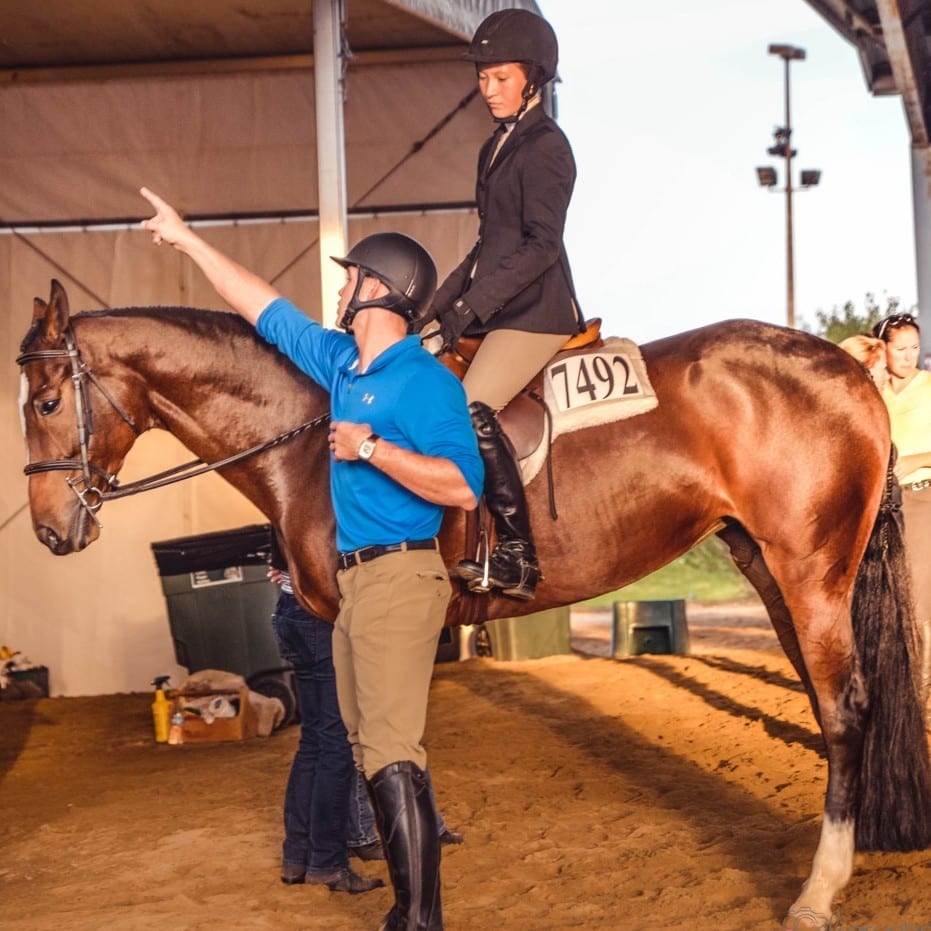The horse show industry is vast and hectic to say the least, but somehow, all competitors never fail to come together. We are all united under a common trait; a love of horses and horse showing. Some find complete satisfaction in showing during their youth career, and moving on to becoming an amateur, and, then, eventually, a select amateur.
But for others, satisfaction is found as a professional, teaching both horses and people all the knowledge they have to offer, in an occupation they love. We spoke with four successful woman who made the challenging decision of whether to give up their amateur card or get their amateur eligibility back.
Elizabeth Knabenshue, had much success as an amateur, showing the all-around events before making the decision to become a professional. “While I am very proud of my trail accomplishments, I would say my biggest personal success was winning the Congress in the Amateur Horsemanship and being reserve at the AQHA World Show in the Amateur Showmanship. I worked very hard at these classes and when the results paid off it was very rewarding for me personally,” said Knabenshue.
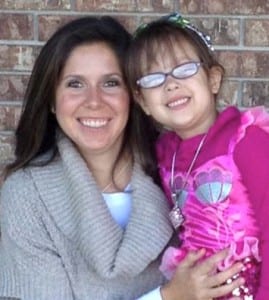 Currently, Elizabeth and her husband, Will, operate out of Whitesboro, Texas, and together they run Knabenshue Performance Horses. Elizabeth (pictured right) explained that her husband was an integral part of her decision to give up her amateur status and become a trainer alongside him. “I had a desk job when he first went out on his own, but as his business grew, he needed more help. He thought I would be an asset, as I have always liked the pattern classes and helping people. However, it was a very difficult decision. I felt as though I had not earned it because I hadn’t worked for anyone,” Elizabeth said.
Currently, Elizabeth and her husband, Will, operate out of Whitesboro, Texas, and together they run Knabenshue Performance Horses. Elizabeth (pictured right) explained that her husband was an integral part of her decision to give up her amateur status and become a trainer alongside him. “I had a desk job when he first went out on his own, but as his business grew, he needed more help. He thought I would be an asset, as I have always liked the pattern classes and helping people. However, it was a very difficult decision. I felt as though I had not earned it because I hadn’t worked for anyone,” Elizabeth said.
Whether earned or not, after a long two years, Elizabeth made the decision to take the plunge, and join her husband as a professional. Elizabeth’s goals as a professional are quite simple: stay true to herself, and run a good business. “The success we have had over the years is the icing on the cake,” Knabenshue said in regards to her career as a professional horsewoman.
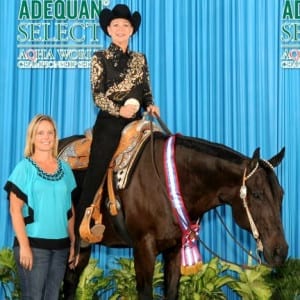 Similarly, Nancy Alto Renfro also went through the same process of making the difficult decision to transition from amateur to professional. However, Renfro’s decision was made a little quicker. “I really enjoyed helping people and riding other horses. I had two close friends and competitors who pushed me to be a professional. They are still clients of mine–10 years later,” said Nancy. Renfro operates out of her ranch in Finely, California where she trains both horses and people for the all-around classes.
Similarly, Nancy Alto Renfro also went through the same process of making the difficult decision to transition from amateur to professional. However, Renfro’s decision was made a little quicker. “I really enjoyed helping people and riding other horses. I had two close friends and competitors who pushed me to be a professional. They are still clients of mine–10 years later,” said Nancy. Renfro operates out of her ranch in Finely, California where she trains both horses and people for the all-around classes.
Prior to becoming a professional, Nancy had one of the most successful amateur careers ever recorded in AQHA winning 13 World Championships and 10 Reserve World Championships in eight different english and western events. “My biggest success was probably winning the Amateur All-Around at AQHA World Show,” said Renfro. “Also, every horse I sold when I was finished went on to be a Congress or AQHA World Champion for their next owner.” With this incredible track record as an amateur, the path to professionalism was a clear one for Nancy.
While many amateurs choose to become professionals, there are some who decide to get their amateur status reinstated. Amy Mackie Smith said it was simply “just time for a change.” Smith started as a professional largely in part to help her young niece, Julia Jordan pursue her passion for horses and showing. “I trained some problem horses, but mostly had youth clients,” said Smith. “They were fun and energetic.”
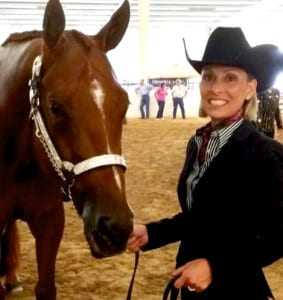 Located at Spruce Hill Farm in Maine, Amy and her clients weren’t always able to haul to many of the major shows, but still had much success. “Our little barn had several homegrown Regional Champions, Congress Finalists and World Show Qualifiers,” said Amy.
Located at Spruce Hill Farm in Maine, Amy and her clients weren’t always able to haul to many of the major shows, but still had much success. “Our little barn had several homegrown Regional Champions, Congress Finalists and World Show Qualifiers,” said Amy.
Although no longer a professional, Amy is excited with the prospects of her amateur career. “I’m looking forward to and excited to show prospects I’ve raised since birth, out of my mares by my own stallion, Iron Enterprise and to be able to balance that with my family’s other interests.”
From the very beginning of her show career, Laurel Champlin of Gardnerville, Nevada started off as a professional. “From the time I was 18 years old, I was a professional only because I earned money riding and coaching,” said Laurel.
When she started out, Champlin worked as an assistant trainer to earn extra money as she attended Arizona State University. “After graduating with a business degree, I worked for Ralston Purina but kept riding on the side,” said Laurel. “The opportunity arose for me to work for Al Dunning and I took it. While there, Lynn Palm came to give a clinic with Al, and she asked if I would like to work for her. I have always loved English riding so I said yes. I loaded all of my belongings and headed to Wisconsin and then to Bessemer, Michigan to work along side Stephanie Lynn.”
Champlin specialized in hunter under saddle futurity horses at first, and then eventually went on to coach youth kids and amateurs. Even though Laurel enjoyed training others, she made the tough decision to give up her professional status and judges cards to focus on her family.
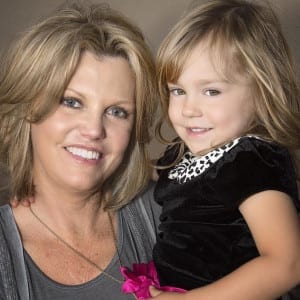 “As soon as I became an amateur, I felt like I had lost that family of AQHA professionals,” Laurel said. But as an amateur, she has many goals. “Every year in January, I write them down and discuss with my coaches how to achieve them,” said Laurel. “This year I would like to show in the all-around events on my horse, Look N Hott. He has won several world championships in hunter under saddle, so this year I am adding western riding, showmanship, horsemanship, and equitation. Hunter hack may also be added. I love competing and I love winning!”
“As soon as I became an amateur, I felt like I had lost that family of AQHA professionals,” Laurel said. But as an amateur, she has many goals. “Every year in January, I write them down and discuss with my coaches how to achieve them,” said Laurel. “This year I would like to show in the all-around events on my horse, Look N Hott. He has won several world championships in hunter under saddle, so this year I am adding western riding, showmanship, horsemanship, and equitation. Hunter hack may also be added. I love competing and I love winning!”
With all big decisions comes the possibility of having immense regret. For these women, the decisions, regardless of which direction they were going, carried colossal importance. “I loved every minute of being a professional, riding and working with horses and riders that wanted to excel,” Champlin states. “However, I do believe it was the correct decision to become an amateur. I made the decision for my family and I have never regretted it. I have had the best of both worlds where I am able to travel and compete which is my passion and I have raised my family. I have three amazing daughters and six grandchildren.”
Like Laurel Champlin, Amy Mackie Smith also felt no sense of regret upon completing the process of obtaining her amateur eligibility. “Of course, as any trainer knows, you are pulled in many directions and your own time gets limited,” said Amy. “I really love being social and being around fun, happy people, which I still can be as an amateur. In fact, I’ll have more time. I feel confident I made the right decision as I still get to break out and train my own prospects and I still get to teach my eight year-old daughter and watch her show as well. I haven’t had the chance to show as an amateur yet, but I am looking forward to it!”
Knabenshue says that while she does miss showing in the horsemanship, she also believes she made the correct decision. “What I like most about being a professional is seeing our customers grow and accomplish their goals.”
Renfro echoes Knabenshue’s sentiments. “I miss showing in the horsemanship and equitation,” she laments. “I loved competing in events that were judged on your ability as a rider, but I don’t ever wish that I still had my amateur status because I felt like I achieved all that I could. Now, I enjoy coaching clients and watching their success. I believe I absolutely made the right decision.”
When push came to shove, as all of these women went through big transitions. While making tough decisions, they all came to the same conclusion: as long as horses were still a big part of their lives, they have enjoyed their journey and wouldn’t change a thing.


